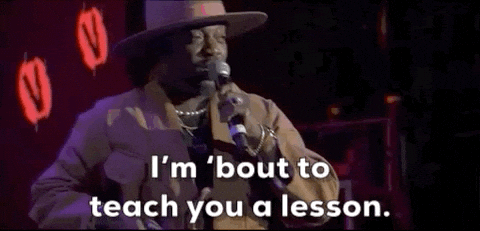- NIL Wire
- Posts
- 🏅 Interview with Charles A. Gaspard
🏅 Interview with Charles A. Gaspard

Hey there,
Merry Christmas from the NIL Wire team!
In this week’s expert interview edition, we're thrilled to feature Charles A. Gaspard, Vice President of Music, Sports, and Entertainment at First Horizon Bank in New Orleans. With over a decade of experience in the financial services industry, Charles brings a wealth of knowledge to the table, particularly in providing specialized financial services to individuals and businesses in the music industry.
We've asked Charles to share his insights on the financial challenges and opportunities facing student-athletes in this new NIL era. From adopting banking services to addressing common financial pitfalls, Charles offers his expert perspective on how the financial industry can better serve these young athletes.
Join us as we explore the intersection of finance, education, and athletics, and discover how financial institutions can play a crucial role in empowering student-athletes to make informed decisions about their newfound earning potential.
Let's get right into it!
— Cole, Justin and Collin
How do you see the banking industry adapting to the unique financial needs of student-athletes in the NIL era?
The banking industry must embrace technology while also creating specialized teams to address the financial needs of student-athletes. These groups should provide tailored coaching to help athletes manage their financial journeys from NIL earnings through their professional careers. With many athletes launching businesses through NIL, banks have a unique opportunity to teach them how to leverage financial tools to grow and sustain their ventures. Today’s financial conversations extend far beyond investing—they encompass a global approach. This is a method we already implement with corporate clients, and it is critical to extend the same strategy to student-athletes.

What are the most common financial pitfalls you've observed for student-athletes managing NIL income, and how can they better prepare for the tax implications of their earnings?
Overspending is one of the most frequent financial pitfalls in the NIL era, compounded by the lack of a solid financial plan. The digital age makes it easy to overspend without realizing the long-term impact. Another common issue is failing to prepare for taxes, which can quickly become a bigger problem. Falling behind on taxes can lead to penalties, fees, and even financial distress if left unaddressed for multiple years. To avoid this, student-athletes need proactive planning and education on the importance of setting aside funds for taxes. Partnering with accountants or financial advisors who specialize in their unique needs can be invaluable.

Teaming up with
How can coaches and athletic departments work with financial institutions to provide better financial literacy programs for their student-athletes in light of NIL opportunities?
One of the most impactful ways to educate student-athletes is through storytelling. Coaches, alumni, and trusted financial partners can share personal financial experiences that highlight both successes and challenges. Real-world examples resonate more deeply than theoretical lessons, making financial concepts relatable and memorable. Athletic departments can collaborate with banks to create workshops, webinars, and one-on-one mentorship opportunities, equipping student-athletes with the tools and knowledge they need to thrive in their NIL endeavors.

What innovative financial products or services do you think banks should consider developing specifically for student-athletes to help them manage and grow their NIL earnings?
While it may not seem groundbreaking, simple tools like account alerts can be incredibly effective for student-athletes. Notifications about spending limits or upcoming payments serve as timely reminders to stay on top of their finances. Beyond that, the real innovation lies in combining cutting-edge technology with personalized service. Technology offers convenience and efficiency, but student-athletes often need a more hands-on approach. Bankers who understand their unique needs can provide tailored guidance on saving, investing, and planning for the future.

Given your experience with high-profile clients in the entertainment industry, what lessons do you think student-athletes can learn from established professionals when it comes to long-term financial planning and brand management?
Established entertainers excel at reinvesting their earnings into new projects, giving them greater creative and financial control over their careers. They also prioritize building relationships with brands and proactively seeking endorsement opportunities. Similarly, student-athletes can use NIL earnings as a launchpad for entrepreneurial ventures or as a foundation for future financial security. By focusing on strategic reinvestment and branding, they can establish themselves not only as athletes but also as entrepreneurs and influencers.
